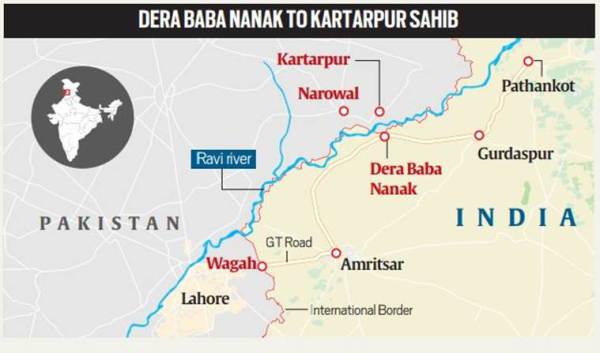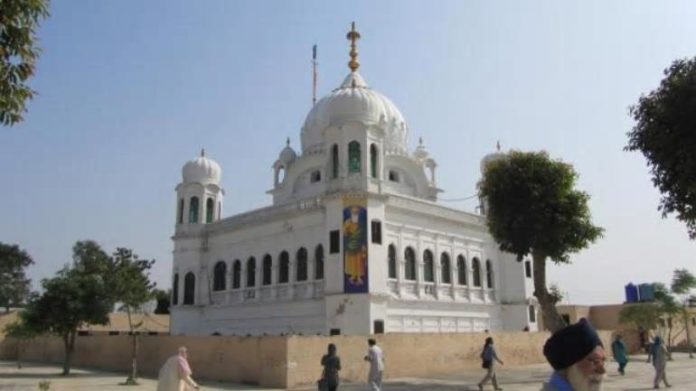The visa-free corridor for Sikhs from India to Pakistan’s Kartarpur Sahib, revered as the place where Guru Nanak is said to have spent his final days and where he breathed his last, seems to have become possible not through an agreement between India and Pakistan, but with one side deciding not to oppose what the other had decided. Instead both are actively, and competitively, claiming ownership of a move that is a big leap forward for people-to-people relations.
On Thursday, hours after the Union Cabinet approved development of the Kartarpur corridor from Dera Baba Nanak village in Gurdaspur to Gurdwara Darbar Sahib Kartarpur in Pakistan, the Pakistan government responded that it has decided to open the corridor. The length of the corridor is about 4 km, 2 km on either side of the international border.
India’s announcement that it would develop a corridor up to the international border was timed with the start of 550th birth anniversary year of Guru Nanak, from Friday. The government also asked Pakistan “to recognize the sentiments of the Sikh community and to develop a corridor with suitable facilities in its territory from the International Border to Gurudwara Kartapur Sahib to facilitate easier access and smooth passage of India pilgrims through the year”.
Within minutes of the Cabinet decision being announced, Pakistan Foreign Minister Shah Mahmood Qureshi tweeted that the Pakistan government “has already conveyed to India its decision to open Kartarpur Corridor for Baba Guru Nanak’s 550th birth anniversary”, and that Prime Minister Imran Khan would do a groundbreaking ceremony for the corridor on November 28. He also welcomed “the Sikh community to Pakistan for the auspicious occasion”.
Later, from the Indian side came the announcement that President Ram Nath Kovind and Chief Minister Amarinder Singh will lay the foundation stone for the proposed corridor two days earlier, on November 26.
Whether the announcements were a coordinated two-step by the two countries, despite the big chill in their relationship, is unclear. If that is the case, it would point to a deep, ongoing back-channel process. But what is apparent is that India decided to get on board the initiative because it did not want to be upstaged by Pakistan, which proposed it first. India could not be seen denying its Sikh community what Pakistan was ready to roll out for it.

From the time Punjab minister Navjot Sidhu returned from Imran Khan’s swearing in ceremony to report that Pakistan Army chief General Qamar Javed Bajwa had told him that Pakistan was going to open the corridor for the occasion of the 550th birth anniversary, the matter had set a cat among the pigeons on the Indian side.
In Punjab, the Chief Minister lambasted his Cabinet colleague for not following protocol on bilateral matters, and quickly urged the Centre to “take up the Kartarpur issue with Pakistan”, a demand he reiterated several times over the last three months. Within a week of Sidhu’s return, the government also moved a resolution in the Punjab Assembly, adopted unanimously, seeking an uninterrupted corridor from Dera Baba Nanak to Kartarpur Sahib.
Pilgrimages between India and Pakistan are governed by the 1974 Protocol on Visits to Religious Shrines, which includes a list of shrines in Pakistan and India open for visitors from the other country, and for which visas are required. The Kartarpur Corridor, which will provide visa-free access from India to the shrine located 2 km inside Pakistan in Narowal when it becomes ready on both sides within a few months, may need a separate treaty.
Source:Indian Express

Readers like you, make ESHADOOT work possible. We need your support to deliver quality and positive news about India and Indian diaspora - and to keep it open for everyone. Your support is essential to continue our efforts. Every contribution, however big or small, is so valuable for our future.












This is a historic decision and hopefully will not be high jacked by elements who are not interested in peace between the two countries